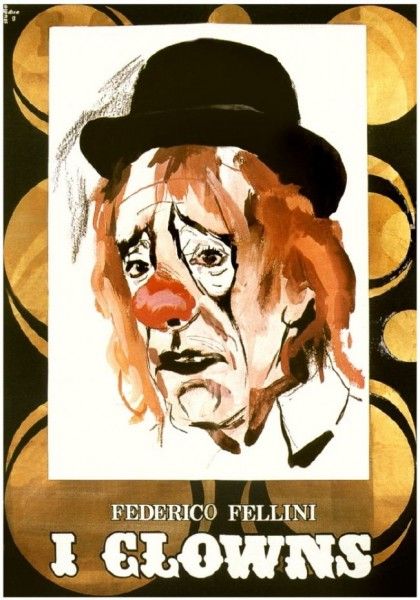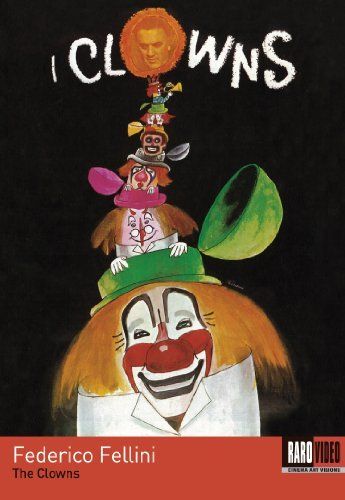Every now and then one watches a film that takes a couple days to absorb. I am not just talking about dissecting and understanding—often the better the movie, the more that is revealed by further thought—but literally the most basic of conclusions, sometimes even so simple as whether one likes it or not. Federico Fellini’s The Clowns was just such a movie for me. The Clowns is Fellini’s filmic exploration of his own—and humanity’s—fascination with clowns and the circus (for those not familiar with Fellini’s work, clowns and the circus play prominently across his oeuvre). For my DVD review of the film, join me after the break.
Section 1 tells the typical story of a circus coming to a small Italian town, concluding with an extensive, almost gratuitously long performance sequence inside the big top. If this were all one watched of the film, one would think The Clowns was a narrative. One would be wrong.
Segue into Section 2, which is a documentary about the many great European clowns of the early- and mid-twentieth century. To be totally accurate, Section 2 is simultaneously a documentary on the clowns and a faux documentary of the making of said documentary, with Fellini and his crew “playing themselves." And when I say playing, I mean playing—the footage feels very much staged, not your video camera spying in on the set that we have now seen in so many DVD bonus features.
Oh, and Section 1? It is actually Fellini’s recreation of his memories of the circus as he saw it as a child, when the clowns in fact terrified him. Indeed, the clowns in that sequence are creepy, dirty, rough men, and Fellini’s tight packing of manic activity into the 4:3 screen provides for an extremely claustrophobic effect that augments the disturbing nature of this particular circus.
Finally, Section 3 consists of the interviewed clowns from Section 2 performing a giant funeral routine for one of their own, a recreation of their art for Fellini as documentarian that we also see being shot from the pseudo-documentary perspective of the director making his film. It is simultaneously Fellini’s tribute to the clown’s craft, an elegy to the dying breed of traditional clowns, and his sick revenge for the terror that clown’s inflicted upon him as a child.
Confused yet?
Is it Fellini’s finest work? No. But there is some brilliance here. Structurally The Clowns is unlike anything I have ever seen. I was absolutely convinced that I was watching a narrative feature until the sudden switch to documentary (actually, the initial switch is to the faux documentary, thus continuing the illusion that the film is narrative a slight bit longer). The big top sequences at the beginning and end are a far cry from the slick, awe-inspiring set pieces of mainstream Hollywood fare; these are course, rough, more “real” despite being “staged” in the sense of a film inside a film. One is definitely left with a distinct feeling of sadness at The Clown’s completion—Fellini definitely believes society has lost something important with the demise of the clown.
Video and audio of this DVD release are clean but unspectacular. The video is soft, with muted colors, which I suspect has to do with The Clowns initially being a 1970 TV movie. Special features include a 1953 Fellini short, Agenzia Matriomoniale (Marriage Agency), a featurette entitled “Fellini’s Circus” that references The Clowns in context to the director’s entire body of work, and a book about the making of the movie.
All in all, The Clowns is extremely interesting viewing that provides great insight into the inner workings of Federico Fellini and his filmic inspiration by the circus. It is a film I am sure to revisit the film as I continue to study the director.



